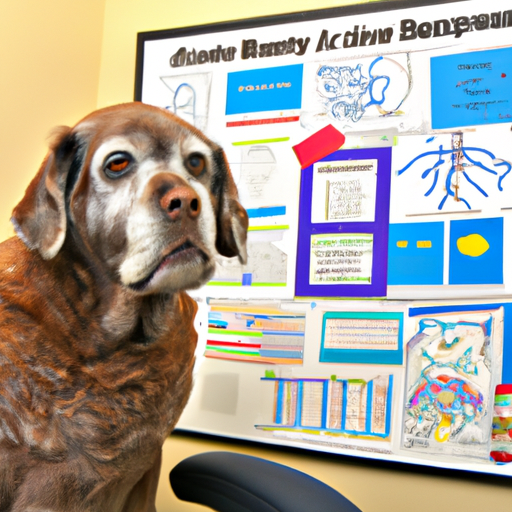Dementia, while commonly associated with humans, can also afflict our beloved canine companions. Canine Cognitive Dysfunction (CCD), or dog dementia, is a degenerative brain disorder affecting dogs primarily of older age, causing changes in their behavior and personality. This comprehensive guide will provide insights into this condition, its symptoms, diagnosis, and possible treatments, helping you, as a caregiver, give the best possible care to your furry friend.
- Table of Contents
- Understanding Dementia in Dogs
- Symptoms of Dog Dementia
- How is Dog Dementia Diagnosed?
- Treatment and Management
- Frequently Asked Questions
- Key Takeaways
- Dementia in dogs, also known as Canine Cognitive Dysfunction, is a degenerative condition affecting older dogs.
- Symptoms typically involve changes in behavior and personality, such as disorientation, changes in sleep patterns, loss of house training, and reduced interaction with family members.
- Diagnosis involves a thorough examination by a veterinarian, ruling out other possible health issues.
- While there is no cure, there are treatments and management strategies available, such as medication, dietary changes, and mental stimulation.
Understanding Dementia in Dogs
Canine Cognitive Dysfunction (CCD) is akin to Alzheimer’s in humans. It’s a condition characterized by a progressive decline in a dog’s cognitive function. As per a study by the Journal of Veterinary Internal Medicine, it’s estimated that 14% of dogs are affected by CCD, with this figure increasing for senior dogs.
Anatomically speaking, dogs with dementia show physical changes in their brains. These include an increase in the size of the brain’s ventricles and a decrease in brain mass, similar to changes seen in humans with Alzheimer’s disease. To further learn about the anatomy of a dog’s brain, visit here.
Symptoms of Dog Dementia
Understanding the symptoms of dog dementia is crucial for early intervention and treatment. These symptoms often progress slowly, making them easy to miss. They include:
- Disorientation: Dogs may seem lost or confused in familiar places.
- Changes in sleep patterns: Dogs may sleep more during the day and less at night.
- Loss of house training: Dogs may start to have accidents indoors.
- Reduced interaction: Dogs may show less interest in petting, play, and family activities.
How is Dog Dementia Diagnosed?
Diagnosing CCD can be challenging due to the gradual onset of symptoms and their similarity to other age-related conditions. Your vet will conduct a thorough physical examination to rule out other diseases. The vet may also use the DISHA (Disorientation, Interactions, Sleep-wake cycle, House soiling, Activity levels) acronym as a guide to assess symptoms. To delve deeper into the diagnostic process, visit this link.
Treatment and Management
While there is no cure for CCD, several strategies can help manage the symptoms and improve your dog’s quality of life:
- Medications: Certain drugs, such as selegiline (Anipryl), can help manage symptoms.
- Dietary changes: A diet rich in antioxidants and omega-3 fatty acids can support brain health.
Remember, every dog is unique, and what works for one may not work for another. It’s crucial to work closely with your vet to develop a treatment plan tailored to your dog’s needs. To explore more about dog nutrition and diet, visit this page.
Frequently Asked Questions
- Can a dog with dementia be in pain?
-
Dogs with dementia are not usually in pain. However, they may experience anxiety and confusion, which can lead to stress.
-
How can I comfort my dog with dementia?
-
Maintaining a regular routine, providing plenty of mental stimulation, and giving them a safe, comfortable space can help ease their anxiety.
-
Can dementia in dogs be reversed?
- While CCD cannot be reversed, early intervention and treatment can slow its progression and manage symptoms.
In conclusion, dementia in dogs is a serious but manageable condition. As a caregiver, understanding the symptoms, diagnosis process, and treatment options can help you ensure your furry friend lives their golden years with dignity and comfort. Remember, regular veterinary check-ups are critical for early detection and treatment, ensuring your dog’s health and happiness.



